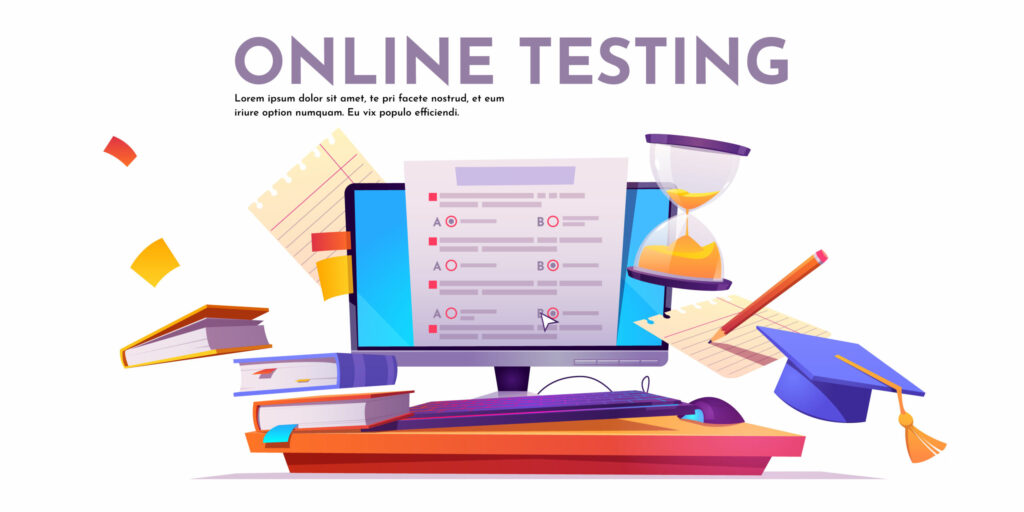
Online assessment tools pave the way for successful campus hiring drives
Young professionals are an asset to any organisation. They brim with fresh energy and innovative ideas, and all organisations are eager to tap into that. Campus hiring is how most organisations recruit young talent. The hiring process involves large numbers and the traditional methods of screening with pen and paper assessments are resource heavy in terms of time, cost and manpower. Campus hiring involves evaluation of a candidate’s academic knowledge, aptitude, communication skills and ability to conduct themselves in group discussions, among other things. Hours spent screening hundreds of students does not really give a very clear idea about the candidates. The wrong cultural fit usually leads to attrition in the future.
Technology can improve the selection process. Online assessment tools are designed scientifically to test numerous skills, evaluate the tests and generate reports quickly. They can handle large numbers easily and have already made inroads into organisations. In recent times, almost 65 per cent of organisations have hired people through virtual processes.
Campus hiring involves many organisations picking candidates from the same pool. Other than personal preferences, candidates usually take up the opportunity offered by the first organisation. A quick hiring process powered by a well-designed online assessment tool can help organisations pick the most suitable candidates. The importance of online assessment tools in modern hiring cannot be stressed enough.

Advantages of using online assessment tools:
- Save time, effort and cost: Screening candidates based on resumes alone is not sufficient. Online assessment tools save time, effort and cost. Well-designed skills and aptitude tests can filter out candidates who are below par.
The logistics and resources involved in conducting pen and paper tests are costly and time-consuming. Organisations have to arrange for printing test papers, manpower to monitor the tests and enough space to accommodate large numbers of candidates. Time saved always means costs are reduced. Online assessment tests can be conducted at test centres and monitored by their trained personnel.
- Obtain unbiased and error-free results: Online assessment tools offer an unbiased testing platform; the results are reliable. Human errors can be reduced. This translates to very few bad hiring decisions, which can be significantly reduced.
The results of online assessments are data-based and organisations can choose to use techniques driven by artificial intelligence (AI) to gain insights into candidates.
- Enable many verticals to be tested: Online assessment tests are easier to design in terms of flexibility and verticals. Many aspects of a candidate’s abilities and personality can be tested during one test. Pen and paper tests are limited in their coverage and organisations cannot identify candidates with hidden skills. All things being equal, the top performers in a class will seem equally fit or unfit after such tests. Online tests allow recruiters to identify specific skill sets.
a. Check cultural fit: Since campus hiring usually involves candidates without any work experience, it is difficult to use traditional methods to identify candidates with the best cultural fit. Online assessment tools can help here. Robust psychometric assessment tests can test candidate psychology and cultural fit. Such tests involve assessing behavioural and emotional intelligence. A wrong fit will lead to early attrition, which, in turn, means increased costs.
b. Check candidate aptitude, cognitive and soft skills: While young candidates are not expected to have work experience, organisations naturally prefer to recruit candidates with a certain amount of knowledge and reasoning ability. Vocabulary, number processing skills and speed, spatial visualisation and perceptual speed are other skills that can be tested. Test results provide an accurate picture of candidates’ ability to solve problems under a certain amount of pressure. Checking soft skills too is an essential part of the evaluation process. Motivation, flexibility and social skills are all essential for a successful and happy work experience. The experience at their first job will colour the opinions of young professionals for a long time.
- Offer scalability and flexibility: Online assessment tools enable organisations to test hundreds of candidates at the same time. Further, being online, candidates can take the tests from anywhere, provided the tests can be proctored remotely. Organisations can integrate the tools with their recruitment workflow and application tracking systems (ATS) so that candidates receive important notifications automatically.
- Ensure tests are proctored: All vendors of online assessment tools ensure that tests are proctored and conducted true to their essence. 360-degree proctoring—video, screen and audio proctoring—are some of the most effective ways to ensure the integrity of the assessment tools. Other proctoring methods include secure logins, automatic fraud detection and remote proctoring.
- Have quick turnaround time: Online assessment tools enable a speed that is not possible with traditional methods. During online assessments, test results are automatically generated as soon as a test is over. Further, since the test results are analysed by AI or other programmes, decision makers can plan their next steps based on the screening results.
- Make it easier to add diversity: Traditional campus recruitment drives may be biased when it comes to recruiting young professionals from underrepresented communities. Conditioning may also make candidates hesitate to apply for all opportunities. However, online assessment tools offer all candidates a uniform platform to showcase their skills and knowledge. They also enable organisations to reach more candidates, practise inclusivity and bring diversity to their workforce. This is especially important on campuses with a diverse student community, both from domestic and international destinations.
- Help candidates understand the organisation: Young professionals are largely driven by their interests. Getting a fair idea about the organisation is very important for Gen Z candidates. The design of the online assessment tests and projects gives candidates an idea about the organisation and helps them decide whether it fits in with their interests. Candidates with very strong profiles veer towards organisations that project an employer brand which aligns with their own values and interests.
- Help build a talent pool: The sheer number of candidates who take the tests helps organisations build a robust talent pool for future needs. Strong candidates who do not fit into the existing requirement profile or those who do not join for various reasons, can be added to the pool. The talent pool is a ready database that organisations can dip into in the future.
Popular features of available assessment tools:
Several assessment tools use AI-driven techniques to evaluate candidates for roles such as software developers. AI gives a huge push to every stage of recruitment.
- Candidates can be evaluated by engaging them in chats with intelligent chatbots. The chats could be about technical or non-technical subjects.
- AI-driven video interviews and coding videos can be sent to candidates, who could complete the interviews and send them back.
- A candidate’s judgement during different situations can be tested using AI tools. Good judgement is believed to be a mark of success.
- Simulation-based tests can measure knowledge and cognitive abilities. Animated tests simulating real-life job situations effectively measure candidate responses and reactions during different situations.
Features to include in online assessment tools: Online assessment tools and platforms should adhere to certain criteria for best results. Some important features are listed below:
- The user interface (UI) of online assessment tools must be user-friendly and appealing. This will make it easy for the recruiters to evaluate and generate results and the candidates to interact and take the tests. Gen Z candidates are quick to report their experiences on social media and other feedback channels. An unpleasant or difficult to manoeuvre assessment platform will be unpleasant both for the candidates and the organisation.
- The testing platform must be equipped well enough to be able to verify the identity of the candidates and prevent identity fraud or any other security issue.
- The assessment tool must be designed well enough to work even in low bandwidth regions. Candidates should not be left wasting time waiting for loading, downloading and submissions.
- A brief training module at the beginning of the assessment should be included so that all candidates can take advantage of it. A step-by-step guide or manual should be provided to candidates to help them use the tool.
- The platform should have continuous support so that both recruiters and candidates can seek help at any point of the testing process. The vendor must make sure that tests continue seamlessly without any undue problems that could stress out the candidates. Recruiters should not face any hurdles either while preparing the assessment or analysing and generating results.
- The assessment tests should be customisable so that recruiters can change questions when and if necessary.
- The assessment tool must be robust and scalable. It must be tested enough for sturdiness and scalability. Testing for scale is often ignored and if the numbers are large, the tool breaks down.
- Assessment tools must have well-designed reporting and analysing capabilities so that organisations can track candidate progress and modify processes if necessary. They should also facilitate personalising every candidate’s assessment and test results.
- Assessment tools that integrate with an organisation’s ATS are useful and save time.
The secret of my success is that we have gone to exceptional lengths to hire the best people in the world.
– Steve Jobs
Finding and hiring the right talent is critical for an organisation’s success. The right assessment techniques can help find the best talent on campuses. Online assessment tools are a dependable way to screen candidates during campus recruitment drives. While testing tools are becoming more sophisticated, organisations are beginning to understand the limitations and possibilities of such tools. The unavailability of sufficient infrastructure is a limitation of online assessment methods.
Campuses that are located in geographically isolated locations or are not financially strong enough to provide candidates with enough exposure to technological developments cannot participate in such hiring exercises. In such situations, strong candidates get left out and organisations lose valuable assets. This is an area that needs thought and a willingness from the involved parties to change the existing conditions.
HirePro’s Campus Hiring Workflows is a platform that enables organisations to hire remotely. It is specifically designed for high-volume recruitment. It can be accessed and used by placement officers, candidates, recruiters and everyone else involved in the hiring process. It offers candidates a seamless experience and organisations a fraud-proof platform.
Write to us at sales@hirepro.in for a demo.
Sources:
